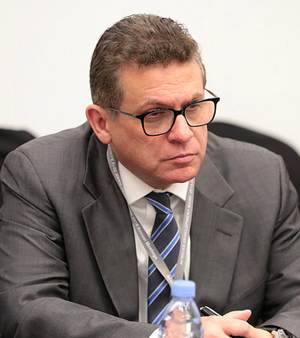There is a need to focus on fundamentals: producing more of what Africa consumes, and consuming more of what Africa produces
The COVID-19 pandemic and its health and economic impacts has forced a global rethink of the current multilateral framework and what it means for the future. For Africa, COVID-19 has served as a wake-up call in many ways. The mitigation measures that were put in place by most countries, globally, to contain the spread of the pandemic, and particularly border closures and lockdowns, resulted in reduced economic activity and supply chain disruptions across the whole world, Africa included. Reduced economic activity has meant demand contraction in Africa’s key markets, who were worse affected by the pandemic, thus depressing export revenues as commodity prices have continued to plummet.
Several African manufacturers have successfully reoriented operations to begin production of Protective Personal Equipment (PPE) and ventilators to meet local demand. However, for the most part, pandemic-related disruptions have exposed African economies’ overdependence on high commodity prices and exports of raw materials to fund basic government services. Together, disrupted international supply chains and domestic lockdowns created a perfect storm in which income, goods or services stopped circulating as economies came to a standstill. No money, no movement, and a realization that most African countries lack economic diversity and resilience.
So, what is to be done? Simply put, there is a need to focus on fundamentals: producing more of what Africa consumes, and consuming more of what Africa produces. This does not mean cutting Africa off from the outside world. However, it does mean focusing first and foremost on the African market, and other markets secondarily. It means the need to think about Africa more as a single common market to facilitate scaling up. Producing and consuming locally will facilitate the development of supply chains that will offer small companies, and countries, opportunities to leverage their strengths and specializations and feed into large value chain networks that create more value through production, processing and distribution. And it means raising the standards within African supply chains to enable African firms to produce world class industrial products.
To achieve this, there needs to be a concerted effort to shore up manufacturing in Africa. The demand for manufactured goods is already there, as evidenced by the figures on the import of manufactures. Key to enhancing manufacturing in Africa is improving intra-African trade through the effective operationalization of the Africa Continental Free Trade Area (AfCFTA), which would spur industrialization. The COVID-19 crisis has shown that enhanced industrial production in Africa is entirely achievable, especially as countries have struggled to source inputs and products from overseas. African industries do have the potential to respond to demand and in fact, there is potential to leap-frog into advanced manufacturing and create the required capacity to produce quality world class goods.
By extension, the pandemic has also exposed the vital importance of economic capacity not only for socioeconomic development and industrialization but to enhance resilience against crises and exogenous shocks that often occur without warning. Building on existing regional strategies for disaster risk reduction, there is also a need to factor in how pandemics present a multi-dimensional set of risks that require integrated responses to mitigate systemic risks.
The capacity to locally manufacture the basics that are critical during emergencies—foodstuffs, clothing, shelter—and building the markets and supply chains needed to ensure a good supply of these, would contribute significantly to GDP, income and job creation.
The question becomes how to build the markets and supply chains needed to ensure Africa can provide for itself, including during emergencies. For example, Africa has several agricultural commodities on which regional value chains can be constructed. These alone would contribute significantly to GDP, incomes and job creation while also paving a shift into the manufacture of light intermediate goods (e.g., wood products, textiles and leather) adds to the range of possibilities. As Africa builds more critical mass, the continent would increasingly move investment into distribution, data transmission and services to ensure these goods make it to market. Financing and insurance are needed across the spectrum, as are all the skills of the youth and specialists who can help manage the IT and logistics that leverage digital capabilities. This will create high paying, skilled jobs for Africa’s youth. In other words, there is a need to take a horizontal view of value creation and maximize opportunities to generate these in Africa, for African economies, African businesses, African workers and African consumers.
So how can this be achieved? Fulfilling the African Development Bank’s High 5s priorities: Light Up and Power Africa; Feed Africa; Industrialise Africa; Integrate Africa; and, Improve the Quality of Life for the People of Africa, would address these challenges on multiple fronts and instrumentalize a tightly interconnected African market. The High 5s address the continent’s demonstrated need for power generation to electrify households and industries; enhanced transport links to connect African countries by land, sea and air; ICT for communication and digital management of logistics; financial markets to integrate for more and better financial flows for business enterprises to flourish and to meet household needs; and agribusinesses that rely on the latest seed and other technology to produce the crop yields needed to sustain Africa’s fast growing populations.
By producing what it consumes and consuming what it produces as its countries and businesses progress up the value chain, Africa can build wealth, opportunity and resilience and ensure the successful realisation of Agenda 2063.
Khaled Sherif is the Vice-President, Regional Development, Integration and Business Delivery at the African Development Bank










